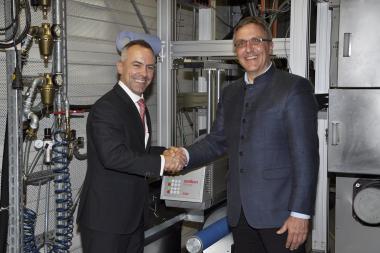In partnership with IPSOS, GINETEX presents the outcomes of its European barometer: "Europeans and textile care labeling"
In partnership with IPSOS, GINETEX presents the outcomes of its European barometer: "Europeans and textile care labeling" 70% of Europeans follow the textile care instructions featured on the labels and 80% admit that they would not (or would rarely) buy clothes without any labels, While another 84% feel concerned by water and energy savings . GINETEX, the international Association for Textile Care Labeling, called upon the French market research company IPSOS, to evaluate the behavior of European Consumers with regards to textile product labels and care symbols. This study, carried out in December 2016, combines the results of six different countries, gathered from a sample of 6,000 people in Germany, England, France, Italy, the Czech Republic and Sweden.
This IPSOS study reveals that 70% of Europeans follow the textile care instructions represented by the symbols. At a pan-European level, 57% even admit that they follow them 'often' and 13% do so 'always'. These figures illustrate the importance of care instructions in the minds of European consumers.
- 38% state that they follow these instructions in order to avoid washing problems such as shrinking, in the first place
- 31% follow them in order to preserve their clothes and keep them longer, as a second reason Overall, Europeans consider labels as too cumbersome and 62% admit cutting them out: for 74% of them, the labels itch and irritate their skin and for another 55%, they are often too long and uncomfortable. These results can differ from one European country to another.
However, the presence of the label is a real purchasing criterion since 80% of Europeans state that they would never or rarely buy a piece of clothing without a label.
GINETEX






